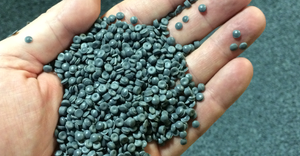Industry Leaders Launch Plan to Close the Loop on Postconsumer Plastic Bottles

Half of Americans have access to recycling that is automatically provided to them, but of those households, 30 percent don’t participate, estimates The Recycling Partnership. The nonprofit recently joined forces with Closed Loop Partners, the American Beverage Association (ABA) and the World Wildlife Fund to improve that participation figure, narrowing in on polyethylene terephthalate (PET) bottles.
With $100 million in backing from ABA members Coca-Cola, Keurig Dr Pepper and PepsiCo, to be allocated through Closed Loop and The Recycling Partnership, the goal is to support a new ABA initiative to return postconsumer plastic bottles to the supply chain to make new bottles.
The partners set up a multipronged approach, leveraging technology and education as their tools, with a lot of thought devoted to strategy.
“We are working to identify opportunities and turn them into projects,” says Bridget Croke, managing director of Closed Loop Partners. “We have started by identifying certain geographic focus areas around the country and have developed a set of criteria to be sure we will have the most impact. We are talking to material recovery facilities (MRFs) and municipalities to see where there may be opportunities to deploy our capital.”
While the $100 million will be allocated over 10 years across multiple cities, the partners are starting in the Dallas-Fort Worth area to increase collection, recycling and processing of plastic bottles.
“We have criteria based on need and opportunity in a given region,” says Sarah Dearman, vice president of Circular Ventures for The Recycling Partnership. “We want to ensure there is a strong end market, and there is one in that region.”
Dearman points to a large bottle-to-bottle facility in Dallas, CarbonLITE.
“Reclaimers like CarbonLITE provide bottle-grade material, and we want that material to go to the highest and best use as part of the circular economy,” she says.
Of the total to be allocated, $2 million will go to Balcones’ MRF in Dallas for sorting technology improvements to be able to supply reclaimers.
With regard to community education and access efforts, the industry initiative has three focus points:
In Fort Worth, carts will be allocated to the city and citizens will be educated on how to recycle and reduce contamination.
In Dallas, the effort will be aimed at improving access to collection in multifamily housing and providing community education.
Across the entire North Central Texas Council of governments, which includes 230 communities, a public service campaign will be undertaken to educate residents on best recycling practices.
“The idea is to marry investments in infrastructure improvements so bottles are sorted properly, with improvements in community collection to get more materials through the system and ultimately fed through bottle reclaimers to produce more bottle-grade recycled PET for new bottles,” says Kevin Keane, ABA’s executive vice president for government and public affairs.
Each partner has a defined role in the project. ABA’s three largest members are providing the funding for the broad initiative. Closed Loop will administer loans to upgrade MRFs to increase PET yields from the facilities’ front to back ends. The Recycling Partnership is working on the community access piece, awarding grants for carts and focusing on education around how to recycle and reduce contamination. And the World Wildlife Fund will provide scientific guidance to help measure the reduction in plastic footprint.
Over the years, ABA members have made investments in community recycling individually, from providing carts to helping with education, and those efforts will continue, says Keane.
“But we wanted to see if we could create scale, so each company is not out there doing their own thing,” he says. “In the past we have worked with Closed Loop and The Recycling Partnership individually on community projects. Now we come together through this initiative to create a system to provide more scale and focus on collection in a way that feeds bottles directly through reclaimers. Thus, we can reach toward our goal of producing more bottle-grade recycled PET to make new bottles and reduce use of virgin materials on the front end.”
This type of collaboration is needed to accelerate the development of a circular economy, says Dearman.
“This is a unique combination of expert organizations coming together with industry to improve recycling in the U.S.,” she says.
About the Author
You May Also Like




